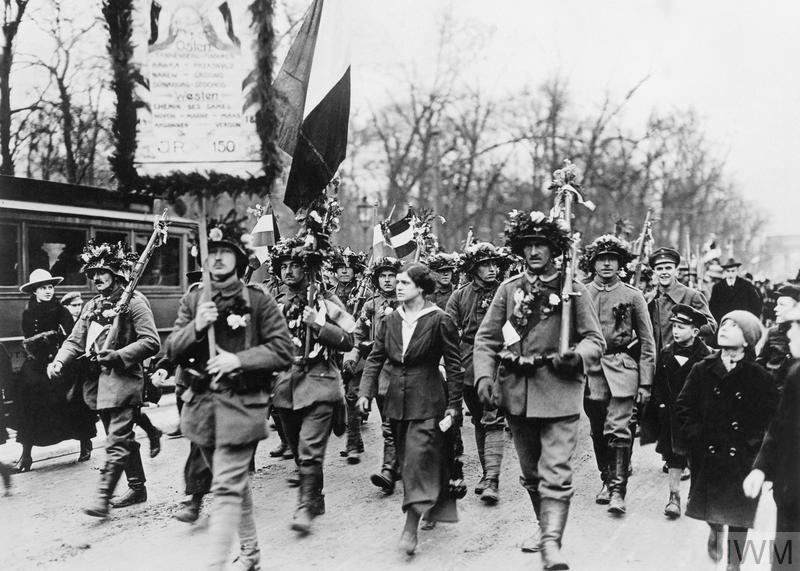Inspired by this thread: https://www.alternatehistory.com/fo...y-of-lockstep-cooperation-with-france.525801/
OTL, during the interwar period, Germany naturally felt betrayed and humiliated by the treaty of Versailles. this at least makes sense given the 4 years of war only to lose while the enemy wasn't even at the border but still within their own nation. I may not agree with it, but I see the logic. something I don't see is how this narrative that Versailles was unjust and unfair also became prominent in the anglosphere during the same period. It wasn't even 1925 before Germany was trying to cheese it and sneak away from it, after all. Not only that, but it was very well known that France could not stop a rearmed Germany, while a rearmed Germany could stop France (see: 1871 and the fact it took four years of war from three world powers to stop Germany from taking Paris during ww1.) - and the territory Germany lost wasn't exactly territory that enabled that, due to still having the Rhineland and silesia. The reparations could only be counted on to weaken the Reich if Germany was willing to pay, or if the entente was willing to force it, which the Ruhr crisis showed was not the case.
So. I want to know how this idea became so widespread and accepted in places like Britain and America. Was it just german propaganda? Feelings stored up by german immigrants? A disconnect between wanting to weaken enemies to prevent war while wanting to prevent potential causes of it? Was it just Wilsonian influence and ideology in the states?
Secondarily, what happens if it never takes hold? Hitler's move in the rhine wasn't the first act of appeasement- that would be France and Britain letting him announce a rebuilt Luftwaffe and the creation of the Kriegsmarine. But even this wasn't the first time that london decided to undermine the treaty- to my knowledge it was during the Ruhr Crisis, where Germany missed coal and lumber payments (based on their own estimations of capacity) that led to France and Belgium occupying the rhine in order to extract the payment. Britain was a large part of why they were eventually forced out and had to reduce the payments. this greatly soured anglo-french relations until Hitler demilitarized the Rhineland.
Now, granted, lockstep with France might not be on the cards, since Britain doesn't want either of them to dominate the continent enough to be a threat, but the British also drastically miscalculated the balance of power between France and Germany in part because of this narrative and it shot them in the foot, so I'm curious as to why this happened
OTL, during the interwar period, Germany naturally felt betrayed and humiliated by the treaty of Versailles. this at least makes sense given the 4 years of war only to lose while the enemy wasn't even at the border but still within their own nation. I may not agree with it, but I see the logic. something I don't see is how this narrative that Versailles was unjust and unfair also became prominent in the anglosphere during the same period. It wasn't even 1925 before Germany was trying to cheese it and sneak away from it, after all. Not only that, but it was very well known that France could not stop a rearmed Germany, while a rearmed Germany could stop France (see: 1871 and the fact it took four years of war from three world powers to stop Germany from taking Paris during ww1.) - and the territory Germany lost wasn't exactly territory that enabled that, due to still having the Rhineland and silesia. The reparations could only be counted on to weaken the Reich if Germany was willing to pay, or if the entente was willing to force it, which the Ruhr crisis showed was not the case.
So. I want to know how this idea became so widespread and accepted in places like Britain and America. Was it just german propaganda? Feelings stored up by german immigrants? A disconnect between wanting to weaken enemies to prevent war while wanting to prevent potential causes of it? Was it just Wilsonian influence and ideology in the states?
Secondarily, what happens if it never takes hold? Hitler's move in the rhine wasn't the first act of appeasement- that would be France and Britain letting him announce a rebuilt Luftwaffe and the creation of the Kriegsmarine. But even this wasn't the first time that london decided to undermine the treaty- to my knowledge it was during the Ruhr Crisis, where Germany missed coal and lumber payments (based on their own estimations of capacity) that led to France and Belgium occupying the rhine in order to extract the payment. Britain was a large part of why they were eventually forced out and had to reduce the payments. this greatly soured anglo-french relations until Hitler demilitarized the Rhineland.
Now, granted, lockstep with France might not be on the cards, since Britain doesn't want either of them to dominate the continent enough to be a threat, but the British also drastically miscalculated the balance of power between France and Germany in part because of this narrative and it shot them in the foot, so I'm curious as to why this happened
